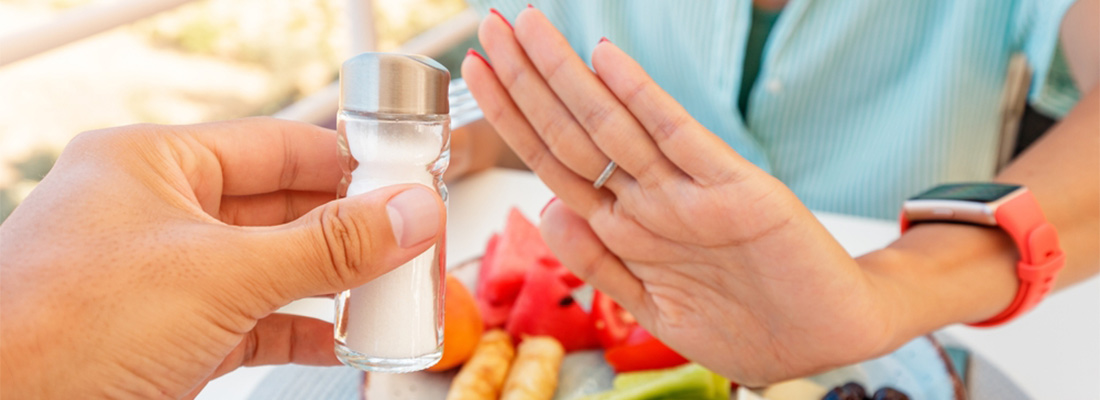Last Updated on June 20, 2024
Diabetes Complications and How to Prevent Them
Diabetes manifests as a lifelong condition which requires continuous vigilance, and without proper management, it can give rise to multiple potential complications.
Moreover, it has the potential to raise or lower blood sugar levels, leading to complications such as nerve damage, kidney disease, and issues affecting the eyes, skin or feet.
This article highlights the various complications associated with the condition and ways to prevent them.
Diabetes Complications – What You Need to Know
Diabetes complications fall into two main categories. Chronic complications, which gradually develop over time, and acute complications, which can occur suddenly.
Chronic Complications
These are long-lasting issues that may develop slowly and, if left unaddressed and untreated, can result in severe damage.
| Eye Issues | Some individuals may develop eye issues known as retinopathy, which can impact vision. Moreover, retinopathy can be detected with the help of eye screening tests. |
| Foot Complications | Foot complications associated with diabetes can result in amputation. For instance, nerve damage can diminish sensation in the feet, while elevated blood sugar levels can impair circulation, reducing the healing process for sores and cuts. |
| Sexual Issues | Damage to nerves and blood vessels may affect blood flow to sexual organs, leading to reduced sensation. Moreover, ones with high blood sugar levels are at an increased risk of developing urinary tract infections. |
| Kidney Problems | Diabetes can also inflict harm on kidneys, decreasing their ability to eliminate excess fluid and waste from the system. It can result in a condition called nephropathy. |
| Gum Disease and Oral Complications | Raised blood sugar levels can result in higher sugar concentrations in saliva. This attracts bacteria that produce acid, leading to erosion of tooth enamel and gum damage. |
Acute Complications
These can occur unpredictably any time and may result in chronic or long-term issues.
| Hyperglycemia | This happens when blood sugar levels spike too high. |
| Hypoglycemia | When blood sugar levels drop too low. |
| Hyperosmolar Hyperglycemic State | This occurs as a life-threatening issue in individuals with type 2 diabetes. It arises from severe dehydration and extremely high blood sugar levels. |
| Diabetic Ketoacidosis | This stems from insulin deficiency and elevated blood sugar levels, which leads to ketone buildup. |
These are the two main categories of complications that diabetes is divided into. However, the complications stem from prolonged high blood sugar levels, which can cause severe damage to blood vessels. When blood vessels fail to function correctly, adequate blood flow to essential body parts is halted, leading to impaired nerve function and loss of sensation in affected areas. Moreover, when there is damage in one part of the body, the likelihood of similar issues arising in other areas increases.
HbA1c, or glycated hemoglobin, forms when glucose, commonly known as sugar, adheres to blood cells, accumulating in the bloodstream. Hence, elevated HbA1c levels heighten the risk of complications.
Notably, even a slight elevation in HbA1c can amplify the risk of complications. However, risks extend beyond blood sugar levels. High blood pressure, smoking or high cholesterol levels can also inflict damage on blood vessels, further increasing the risk.
Learn more about Lifestyle Changes When it Comes to Diabetes
Tips to Avoid Diabetes Complications
Complications are not something completely unavoidable. However, maintaining control over blood sugar, blood pressure, and blood fats significantly reduces the risk of developing complications. Monitoring regular diabetes health checks and exploring potential treatment options for diabetes can serve as a crucial step in overcoming diabetes complications. Some of the major tips to avoid diabetes complications include:
Be Mindful Before Choosing Diet
Diabetes does not necessitate eliminating carbs entirely. One can opt for carbohydrates that are digested slowly in the body, offering sustained levels of energy. It is suggested by our healthcare professionals to include whole grains, fruits, legumes, nuts, and fresh vegetables in the diet. Despite its sweetness, fruits can still be consumed in moderation. However, the key is to consume the appropriate portion of carbohydrates with each meal.
One must indulge in nutrient-rich foods such as berries, sweet potatoes, omega-3 fatty acid-rich fish, and dark green, leafy vegetables if they are dealing with diabetes complications. Prioritize mono and polyunsaturated fats like those found in olive oil. However, for professional guidance, it is advisable to seek advice from a registered dietitian.

Don’ts
- Refined Carbohydrates
- Sugary Beverages
- High-Sugar Snacks
- Saturated & Trans Fat
- Excessive Alcohol Consumptions
Lessen the Use of Salt
Reducing salt consumption is vital. By cutting back on salt, one can potentially reduce blood pressure and can readily safeguard kidney health at the same time. It is advisable to opt for fresh ingredients over convenience foods whenever possible and enhance flavors with herbs and spices instead of salt during cooking. While the general recommendation for people with this condition is to limit sodium intake to less than 2,300 milligrams per day, personalized advice from a healthcare professional may suggest lower amounts.

Don’ts
- Added Salt
- Salty Snacks
- Certain Cheese
Don’t Ignore Bumps & Bruises
It has been seen that diabetes heightens the risk of infection and slows down the healing process. Therefore, it is suggested to promptly address even minor cuts. One must thoroughly cleanse the wound, apply an antibiotic cream, and cover it with a sterile bandage. If no improvement is seen within a few days, consult a physician. However, it is advised to perform a daily check for blisters, cuts, sores, redness, or swelling on feet. Furthermore, moisturize feet regularly to prevent cracks.

Don’ts
- Scratching
- Uncovering
- Friction
Handle Stress Effectively
Stress can lead to elevated blood glucose levels. Reduce or eliminate any physical or mental stress that is within control. It is essential to learn coping strategies to manage stressors, for instance incorporating practices like breathing exercises, yoga, and meditation can be particularly beneficial, especially for those with type 2 diabetes.
Don’ts
- overeating
- Substance Abuse

Achieve a Healthy Weight
Even a slight weight reduction for those who are overweight can enhance insulin utilization, leading to improved blood sugar levels, blood pressure, and blood fat profiles. Additionally, aim to consume fewer calories than you burn. Start by reducing excess fat, sugar, and overall calorie intake from diet.
Don’ts
- Crash Diets
- Extreme Weight Loss Methods

Ensure Adequate Sleep
Insufficient sleep can heighten appetite and cravings for high-carb foods, potentially leading to weight gain and an elevated risk of complications such as heart disease. Seven to eight hours of sleep can help in reducing diabetes complications.
Don’ts
- Excessive Screentime
- Caffeine

It is possible to prevent diabetes complications, but proactive measures are essential. However, it is advisable to consult a healthcare professional for guidance.
Summary
Understanding the diabetes complications is crucial for effective management. Despite diligent efforts, complications can still arise unexpectedly. However, emphasizing balanced diet choices, stress management, weight control, and sufficient sleep can significantly help combat risks. Moreover, regular monitoring of blood sugar levels is essential for individuals with diabetes.

